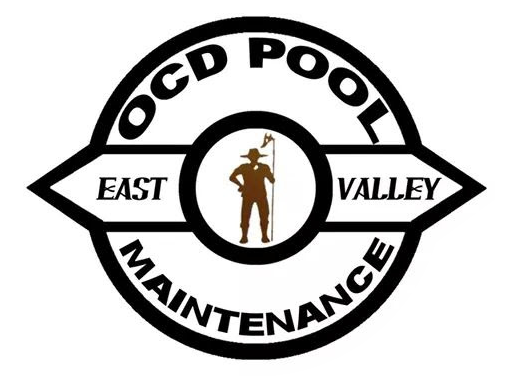Ever wondered why some pool gear lasts a decade, while others need a new one in just a few years? Knowing what is the life expectancy of pool equipment is key for keeping your pool running smoothly and saving money. Pumps, motors, liners, and filters all have different lifespans. But what makes some last longer than others?
Things like how well you maintain it, new tech, and the environment affect how long your pool equipment lasts. For instance, new variable-speed pumps can last up to 12 years, beating older models. But, things like pool liners and filters have their own life spans, depending on the weather and chemicals they face.
So, how do you make the most of your pool equipment without spending too much? By understanding the details, you can make your pool equipment last longer and work better.
Key Takeaways
- Average lifespan of pool pumps typically ranges from 8 to 12 years.
- Copper winding motors generally last 3-5 years, whereas modern magnetic drive motors can last 6-10 years or more.
- Frequent maintenance can significantly extend the life of pool liners, ranging from 10 to 15 years, depending on the region.
- Pool filters usually require replacement every 1-2 years for optimal performance.
- Regular inspection and timely replacement of faulty parts can save on long-term costs.
Overview of Pool Equipment Lifespans
Knowing how long pool parts last is key to keeping your pool running well and saving money. The average life expectancy of pool equipment changes a lot. It depends on the part and how well it’s taken care of.
Grating and main drain covers usually last about 10 years. The parts of the pool that people use can last from 10 to 15 years. But, the mechanical room parts only last about 5 years because they get worn out fast.
Filtration systems have different lifespans. The sand filter tank can last 25 to 30 years. The parts inside might last 5 to 10 years. With regular care, media filters can last over 20 years. It’s good to check the sand in filters every 5 to 10 years. Pools that are used seasonally should be checked every year before opening.
Mechanical and electrical parts also have different lifespans. For example:
- Good pool pumps usually last 8–10 years.
- Medium pressure UV lamps last about 10,000 hours.
- Quartz sleeves need to be replaced every 2 years to keep the UV system working well.
- Probes in water chemistry controllers last 1 to 2 years. The whole controller can last 10 to 15 years.
Heaters keep the pool water warm for about 8 to 12 years. It’s also important to manage chemicals well. Pool chemicals usually stay effective for 3 to 5 years.
Structural parts like fiberglass pools can last 20 to 40 years. Sometimes, they even last longer with good care. Concrete pools can last 25 to 40 years and need resurfacing every 10 years. Vinyl liner pools are expected to last over 20 years, but the liners need to be replaced every 6 to 12 years.
To make your pool equipment last longer, following pool equipment maintenance tips is essential. Regular checks, timely replacements, and preventive actions can help avoid sudden failures. This way, your pool can be a place of relaxation and fun for many years.
Factors Affecting Pool Equipment Longevity
The life of pool equipment depends on several key factors. The quality of materials and how well they are built greatly impacts pool equipment durability. For example, high-quality pumps with adjustable speeds last longer because they face less wear and tear. These pumps usually work well for 8 to 10 years with regular use.
Choosing the right size for your equipment is also very important. Pumps that are too small work too hard and can break down faster. This is because they should filter pool water efficiently within 8 hours.
Extreme weather and wrong chemical levels can also harm your equipment. Parts like impellers and valves can rust, which hurts their performance and lifespan. Fixing leaks quickly helps avoid damage and saves on electricity costs.
Keeping your equipment in good shape is key to making it last longer. This means cleaning filters well, checking seals, and fixing parts like capacitors on time. For example, sand filters can last 25 to 30 years, but their parts might need to be replaced every 5 to 10 years with regular care.
Some equipment, like water chemistry controllers, can last up to 15 years with proper care. But parts like probes might need to be replaced every 1 to 2 years. A strict maintenance routine can greatly extend the life of all pool equipment, making sure they work well for years.
Extending the Life of Your Pool Equipment
Keeping your pool equipment running long requires regular care and early fixes. Make sure to check and repair your equipment often. This helps your pumps, heaters, and filters last longer and saves you money.
Here are key maintenance tips for your pool equipment:
- Regularly clean filters and check for wear or corrosion.
- Inspect pumps and heaters to ensure they work well.
- Use new tech like magnetic drive motors for longer life, up to 10 years.
Each part of your equipment has its own lifespan. Knowing this helps you plan better. For example, pool pumps usually last 10 to 12 years. But, high-quality pumps can last over 15 years with good care.
Pool motors, on the other hand, might need to be replaced 2 to 3 years before the pumps.
Filters also have different lifespans. Sand filter tanks can last 25-30 years. But, their parts might need to be changed every 5-10 years. Regenerative media filters can last over 20 years with regular maintenance.
Don’t forget about smaller parts like bushings, O-rings, and UV lamps. They need to be replaced after a while. Also, watch out for your UV system’s quartz sleeves. They wear out in about 2 years, helping your UV system last 15 years.
Seasonal care is also important. Store your equipment right during off-seasons to avoid damage. Pool covers help keep out dirt and debris, making your equipment last longer.
Following these maintenance tips improves your equipment’s durability and keeps it running smoothly. Regular care is essential for getting the most out of your pool equipment.
Conclusion
Understanding and managing pool equipment lifespan is key to a good pool. Pool pumps last 8 to 12 years. Pool filters, like sand and cartridge types, have different lifespans. Gas heaters last 5 to 10 years, and heat pumps can go up to 20 years.
LED pool lights last a long time, up to 30,000 hours. This is much longer than traditional lights, which last 5,000 to 7,000 hours.
The life of pool equipment depends on many things. This includes the environment, how often it’s used, and regular care. For example, a pool pump motor can last longer with the right installation and yearly checks.
Choosing high-quality equipment, like inverter pool pumps, can also help. These pumps save energy and are quieter. This can make your equipment last longer and need to be replaced less often.
It’s better to take care of your pool ahead of time than to fix big problems later. Small signs, like higher filter pressure or sudden energy bill increases, can mean bigger issues. Fixing these early can save you from expensive replacements.
Regular maintenance and fixing small problems early can make your pool last longer. This way, you can enjoy safe and fun swimming for many years. It helps keep your pool systems working well.



